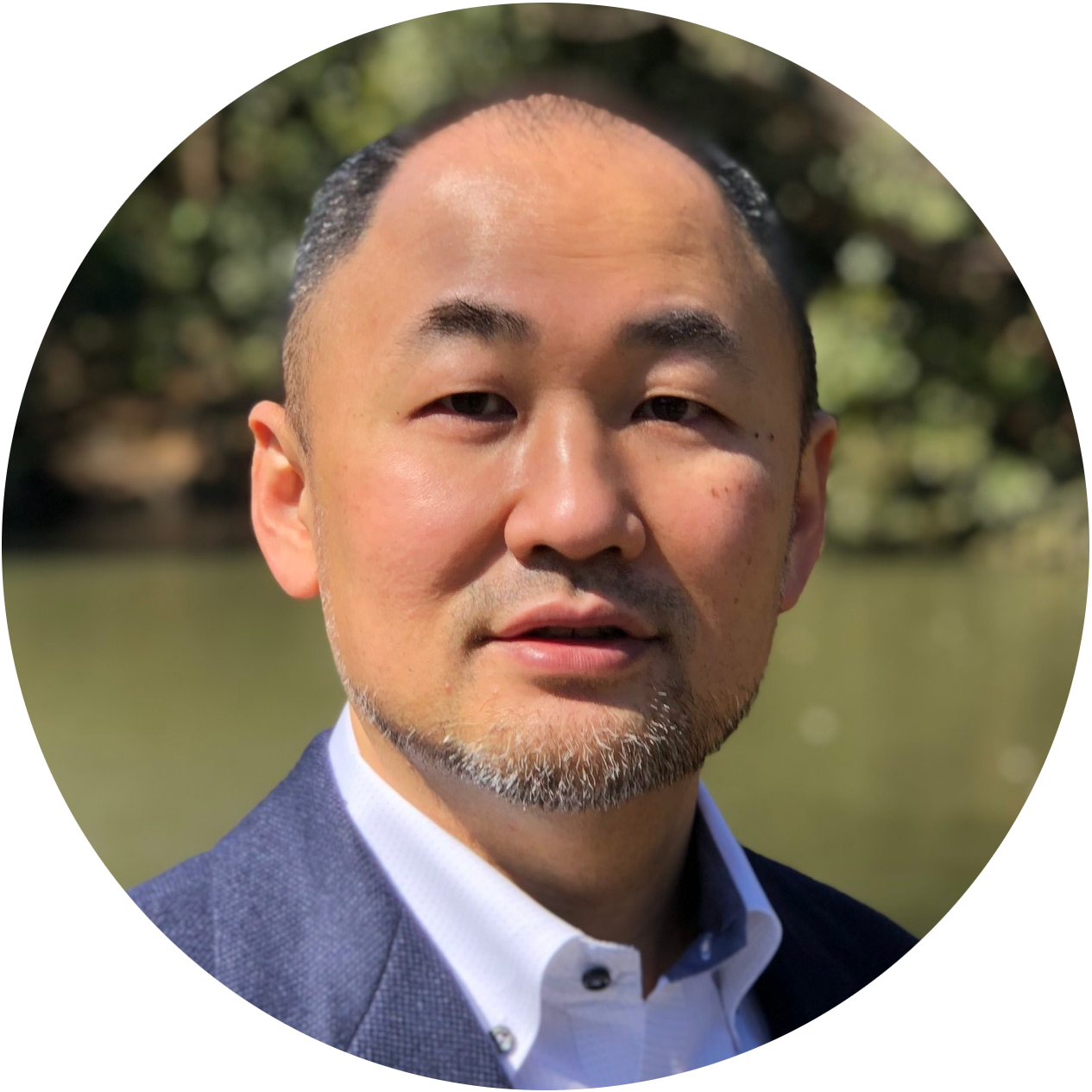HOME > EVENT > 4thsymposium > Short Biography and Abstract
Prof. Nsengi Ntamabyaliro
Head, Department of Pharmacology, Faculty of Medicine, University of Kinshasa
| Short Biography |
Nsengi Ntamabyaliro, MD, MSc, PhD. is an Associate Professor and Head of the Department of Pharmacology at the Faculty of Medicine, University of Kinshasa.
Since 2007, he has worked as Principal investigator, investigator, clinical monitor, and medical monitor in clinical studies on infectious diseases. Through collaborations with national and international institutions, like the US NIH, the Japanese NCGM, the Swiss Tropical and Public Health Institute, (Swiss-TPH), and the Congolese INRB, he has organized training of clinical investigators and contributed to providing medicines and/or improving the use of medicines for diseases like Malaria, Mpox, Tuberculosis, HIV/AIDS, Human African Trypanosomiasis, COVID-19, and Ebola Virus Disease.
He is also a professor of Pharmacology and Pharmacoepidemiology at the University of Kinshasa and a member of the National Pharmacovigilance Centre in DRC. |
| Abstract |
Use of digital tools in Clinical trials: experience of DRC, a low-income country
In our first clinical trial (in 2007), all documents had to be completed by handwriting, including paper CRFs.
The worst part was the resolution of queries: Hundreds of papers had to be printed and the handwritten answers were scanned and sent by email or taken as baggage along with the completed paper CRFs by the Clinical research associate (CRAs). From the year 2010 we started clinical trials that included digital tools: electronic randomization tools, e-CRFs with electronic resolution of queries, e-TMFs etc.
These tools saved time and optimized the use of resources for better quality work. However, the challenges related to the condition in DRC had to be considered additional training of staff, availability, and maintenance of electronic devices, electricity, and internet issues.
The covid-19 pandemic brought the need to use electronic tools for remote working. This promoted the use of electronic tools for studies in the DRC. In addition, the staff quickly learned to use them properly. Currently, most of our investigators can use electronic tools like Medidata-Rave, REDCap, ODK, Medsafety etc. These tools are very useful and ensure quality and confidentiality of data.
However, there are still challenges related to the availability and maintenance of equipment, the need for adaptation when using different tools because of the differences in configuration, electricity, and internet issues. Power back-ups, availability of some tools offline and the use of several providers are among the measures to overcome the issues. |
Ms. Anna Maria Segundina Ordinario
Consultant, Clinical research Professional, National Institutes of Health, University of the Philippines Manila
| Short Biography |
Anna Ordinario is a seasoned professional with 20 years in Pharmaceutical Clinical Research and Digital Health. She was formerly the Implementation Director, Digital Health R&D for Asia, Middle East, and Africa Region at AstraZeneca.
She is pursuing her postgraduate studies in Health Social Science at De La Salle University Manila and learning to make sense of her experience with science and innovation, the realities of poverty and inequalities in health, and how to contribute in this space.
Anna is a graduate of B.S. Industrial Pharmacy, and Diploma in International Health from the University of the Philippines, and a board-certified Pharmacist. Transitioning to a full-time consultant and team coach, Anna collaborates with organizations and institutions like the National Clinical Trial and Translation Center of the National Institutes of Health - University of the Philippines Manila to contribute to the national conversation about health through research. |
| Abstract |
Navigating the Use of Digital Tools in Clinical Trials in Southeast Asia
Asia's clinical trial growth is the fastest in the world, with Southeast Asia as a strong area for expansion. Digital tools have been used in clinical trials for many years. Still, their accelerated use in recent years, including during the COVID-19 pandemic, has opened up opportunities to gather valuable insights from investigator and patient experiences navigating these tools. This presentation delves into the experiences and challenges of implementing digital tools in clinical trials within the dynamic landscape of Southeast Asia. Challenges range from technological hurdles to the need for tailored training programs. A panoramic view of implementation is also offered within the context of health systems and digital transformation. Whereas digital technology has been a transformative agent in clinical trials, the crucial question to explore is the implications for diversity, equity, and inclusion in clinical trials across a region marked by socio-economic, healthcare, and capability disparities. |
Prof. Koji Todaka
Director, Center for Clinical and Translational Research(CCTR), Kyushu University
| Short Biography |
Koji Todaka had clinical training in general internal medicine with a subspecialty in cardiology after obtaining a medical degree at Department of Medicine, Kyushu University in 1985. He joined Dr. Daniel Burkhoff’s lab in the Division of Circulatory Physiology, Columbia University in 1993.
He won a fellowship award from the American Heart Association in 1994. On returning to Kyushu University, he was awarded a degree of PhD in medical science for research in cardiac ventricular mechanics and heart failure in 1997. After spending several years in cath labs as an interventionist, he went on loan to Pharmaceuticals and Medical Devices Evaluation Center (later became PMDA), Ministry of Health, Labour and Welfare as a Medical Reviewer in 2002. He returned to Department of Cardiovascular Medicine, Kyushu University as a Lecturer (Assistant Professor) two and a half years later. On restructuring an academic research organization (Center for Clinical and Translational Research) of Kyushu University Hospital in 2012, he was appointed as Associate Professor, Vice-Director of the Center and was promoted to Professor in 2019 and became the Director in 2022. |
| Abstract |
Dx in Clinical Trial
In the world of clinical trials, efficiency improvements through digitalization and further Dx, digital transformation are being called for, and implementation is progressing. There are many elements in clinical trials, such as subject collection, trial quality control, and data collection, where digitalization can be effective, such as web advertisements, logical checks, and electronic source materials (eSource). Furthermore, in recent years, decentralized clinical trials (DCT), in which subjects do not visit hospital facilities, have been explored for efficiency and patient-centered medical care. Due to the coronavirus pandemic, attention has been paid to the fact that it can be carried out at patients' home, and developed countries seem to have made rapid progress in developing it. However, dealing with pharmaceutical regulations is complicated, and many face-to-face tasks are being replaced with remote operations using digitalization and IT while each step is compliant with GCP. For example, there are many issues that need to be solved on a different level than the digital technology that makes remote medical treatment possible, such as who will ensure the safety of administering investigational drugs in remote locations other than clinical trial facilities.
In this article, I would like to introduce the implementation status of clinical trial Dx in Japan and its challenges, and discuss how it can be applied to LMIC. |
Assoc. Prof. Dr. Pang Yong Kek
Head of University Malaya eHealth Unit, University of Malaya
| Short Biography |
Associate Prof Dr Pang Yong Kek joined the Faculty of Medicine (FOM) at the University of Malaya (UM) in 2002 as a lecturer. The position also requires him to function as a respiratory physician at the University Malaya Medical Centre (UMMC), a hospital affiliated with the FOM.
Besides clinical medicine, teaching and research, he has a great interest in anything “digital” and follows electronic/digital technology development closely. He was the chair of the UMMC e-prescription and electronic medical record development committees until the latter was disbanded in 2018.
In addition, he has vast experience in conducting various clinical research in the field of respiratory medicine for over 20 years. In 2020, he was entrusted to head the newly established unit called UM eHealth Unit. The objectives set forth by the Unit are to expedite the digital transformation and innovation in health education, research and clinical services. |
| Abstract |
Use Of Digital Tools For Subjects’ Recruitment & Retention In Clinical Trials
Clinical research is a branch of healthcare science that is being used to determine the safety and effectiveness of medications, devices and diagnostic products intended for human use. Unlike laboratory research, human subjects are directly involved inthese trials.
Recruiting suitable subjects and achieving the promised number are getting morechallenging these days due to the highly selective target population in certain clinical trials.
Besides, the successful recruitment of suitable cohorts into clinical trials is just half the battle won. It is equally important to ensure that as many subjects are retained in the trial until the end of the study. This is to ensure the scientific integrity of the data and the trustworthiness of the final analysis will not be jeopardised.
In this lecture, I am going to share with you my approaches to overcoming some of the stumbling blocks in the recruitment and retention of trial subjects, with a focus on utilising digital tools and technology to accomplish these tasks. |
Prof. Rungroj Krittayaphong
Professor, Siriraj Hospital, Mahidol University
| Short Biography |
Professor Rungroj is a professor of medicine of the Division of Cardiology, Department of Medicine, Siriraj Hospital, Mahidol University in Bangkok, Thailand.
Professor Rungroj received his medical degree from Chulalongkorn University in Bangkok, Thailand in 1987 and subsequently completed cardiology training at Siriraj Hospital. He joined visiting cardiology fellowship at the University of North Carolina, USA from 1993 to 1995, and in cardiac electrophysiology at the University of Southern California, USA in 1996.
Professor Rungroj research interests include cardiac MRI, atrial fibrillation, heart failure. He is the president of the Heart Failure Council of Thailand, the former President of the Heart Association of Thailand, and former President of the ASEAN Federation of Cardiology.
He has authored more than 200 articles in peer-reviewed journals including JACC, European Heart Journal and Circulation. |
| Abstract |
[Use of wearable in clinical trials]
Wearable device is one of the breakthrough innovation in cardiology. It is currently used to detect heart rhythm abnormality especially atrial fibrillation. The benefit of AF detection lead to the appropriate treatment for the prevention of complication such as ischemic stroke. The commercial use of wearable device require the compliant to regulatory agency. There are advantages and disadvantages for the use of wearable device. The clinical application requires more data for the clinical benefit from clinical trials. Other wearable devices in cardiology are heart failure detection and management devices. Integration of wearable device with other technology such as artificial intelligence will have a potential use in the future. |
Dr. Wataru Sugiura
Director, CCS, NCGM
| Short Biography |
Dr. Wataru Sugiura is the Director of the Center for Clinical Sciences, National Center for Global Health and Medicine. He is also serving as Guest Lecturer and Researcher at the Joint Research Center for Human Retrovirus Infection, Kumamoto University, at the AIDS Research Center, National Institute of Infectious Diseases and at the Department of Infectious Diseases and Immunology, Nagoya Medical Center.
Dr Wataru Sugiura has a wide working experience form Public Universities, at the National Institute of Infectious Diseases (NIID), and private Pharmaceutical companies. His research focus mainly on AIDS and other Human Retrovirus infections.
He is serving as Editor of the Journal of AIDS Research (official journal of the Japanese Society for AIDS Research), Acting Chief Director of Japanese Society for AIDS Research, and Editor of AIDS Patients Care and STDs. He holds a PhD from Hamamatsu University, Japan He is well published in peer review journals. |
Mr. Naoki Tomotsugu
Head of Executive Management, DIT, CCS, NCGM
| Short Biography |
Mr. Naoki Tomotsugu has been Head of Executive Management in the Department of International Trial in the center for Clinical Sciences at the National Center for Global Health and Medicine since 2021. He is in charge of planning of the promotion in multi-regional clinical trials and operating international clinical trials for the drugs, vaccines and medical devices.
He is an expert in clinical data management and project management for clinical trials. Specifically, he has rich experience in quality control and quality assurance for medical research data and eClinical systems through his experiences in the pharmaceutical development division of global pharmaceutical companies at the beginning of his career. In 2023, he wrote one chapter of the book titled “Health Data Science”.
In 2006, he joined the Center for Clinical Research in the School of Medicine, Keio University after 10-year experience in the global pharmaceutical companies. He established the basic infrastructure in data management, research design, randomization, research consultation, and project management for clinical trials as an Academic Research Organization (ARO) in the university. |
Dr. Nguyen Ba Cuong
Attending doctor, Bach Mai Hospital
| Short Biography |
•2008 – 2014: General Practitioner (Hanoi Medical University) - Graduated (2014)
•2014 – 2017: Emergency, Intensive Care Medicine Residency (Hanoi Medical University) - Graduated (2017).
•2017- Present: Attending doctor (Central for Critical Care – Bach Mai Hospital)
•In addition to treating patients at Bach Mai Hospital, has successfully transported and treated many ECMO patients in many northern provinces. |
Dr. Juandy Jo
Executive Director / Assistant Professor, Mochtar Riady Institute for Nanotechnology / Universitas Pelita Harapan
| Short Biography |
Dr. rer. nat. Juandy Jo, M.D. is a viral immunologist with a background training as a medical doctor, awarded by Universitas Gadjah Mada, Indonesia (2003). Subsequently he received scholarships from the Australian Government and German Federal Government to pursue postgraduate study at the University of Queensland, Australia (2005) and doctoral study at the Albert-Ludwig University of Freiburg (in the research laboratory of Prof. Dr. med. Robert Thimme), Germany (2010), respectively.
Juandy performed his postdoctoral training in the research laboratory of Prof. Dr. Antonio Bertoletti at A*STAR-Singapore (2010-2013), focusing on viral hepatitis-related immunology and liver immunity.
He subsequently worked as Senior Immunology Scientist at Danone Nutricia Research in Singapore with a focus on using peptides to induce immune tolerance for patients with food allergy (2013-2020).
Juandy is currently working as Executive Director at the Mochtar Riady Institute for Nanotechnology and Assistant Professor at the Department of Biology of Universitas Pelita Harapan, Indonesia. |











